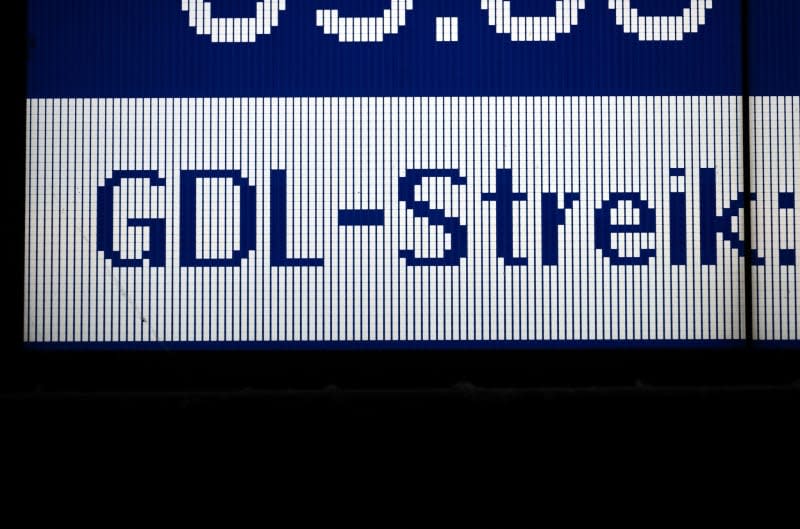Survey: Minority of Germans feel impact of six-day railway strike

A recent survey shows that many people in Germany do not feel affected by the ongoing six-day strike at the state-owned rail operator Deutsche Bahn, however, there is little sympathy for the labour action.
The strike is the fourth, and longest, in a bitter ongoing collective bargaining dispute between the GDL trade union and Deutsche Bahn.
It has caused massive disruptions to passenger and freight rail services throughout Germany, with the majority of trains cancelled.
According to a YouGov survey conducted on behalf of dpa, the level of concern among citizens is limited.
Only one in five respondents felt the current restrictions on rail transport. For more than 75% of those polled, on the other hand, the strike has had no impact.
Even though only a minority are affected by the railway strike, a majority do not support the industrial action, according to the survey.
More than 60% of those surveyed have little or no sympathy for the measures. Only 11% can "fully" support the train drivers' strike.
For the survey, the institute interviewed around 2,000 people between January 23 and January 25. It is representative of the population aged 18 and over.
Union boss Claus Weselsky, meanwhile, claimed on Thursday that public opinion remains on the side of the strikers in their fight against Deutsche Bahn.
On Friday at a rally in Dresden, Weselsky said that he currently sees no reason to continue collective bargaining.
"There must be an end to sham offers," he said.
The main point of contention in the labour dispute is shorter working hours for shift workers.
Despite the considerable impact on travellers and commuters, Weselsky defended the rail strike planned until Monday evening.
Industrial action for better income and working conditions was neither indecent nor criminal, he said.
"Above all, I don't wish that our passengers, or that anyone, find out how long we ... can hold out," he said at the rally.
He added that there is broad support on the union side. "Nobody should count on there being a lack of solidarity."
Meanwhile, the German federal government's envoy for the railways, Michael Theurer, has called for a willingness "on all sides" to negotiate a solution to the train drivers' strike and the wage dispute at Deutsche Bahn.
"Nobody should insist on maximum positions at the negotiating table," the state secretary for transport told dpa in Berlin.
"In the end, Deutsche Bahn and its employees are equally dependent on social acceptance of rail as a mode of transport. The ramp-up of taxpayers' money for the maintenance and expansion of the rail network depends directly on this."
The wage dispute must not continue to be carried out on the backs of hard-working society, Theurer said.
"Our economy depends on a functioning infrastructure," he added.
"Employees must be able to get to work, goods to customers and primary products to companies. Germany is not in a position to afford to paralyse rail transport in the long term."
The train drivers' union has been on strike at Deutsche Bahn since early Wednesday morning. The industrial action in freight transport began on Tuesday evening. The strike is expected to last until Monday evening.
Deutsche Bahn, however, has organized a limited timetable of trains that are still running despite the labour dispute.
The railway is operating longer trains with more carriages than usual in order to squeeze more passengers onto each train. That is particularly true on the important north-south rail corridors, which are particularly busy and in-demand with travellers, the company said.
The aim is to be able to offer the full timetable again on Tuesday, immediately after the end of the strike, it said.

